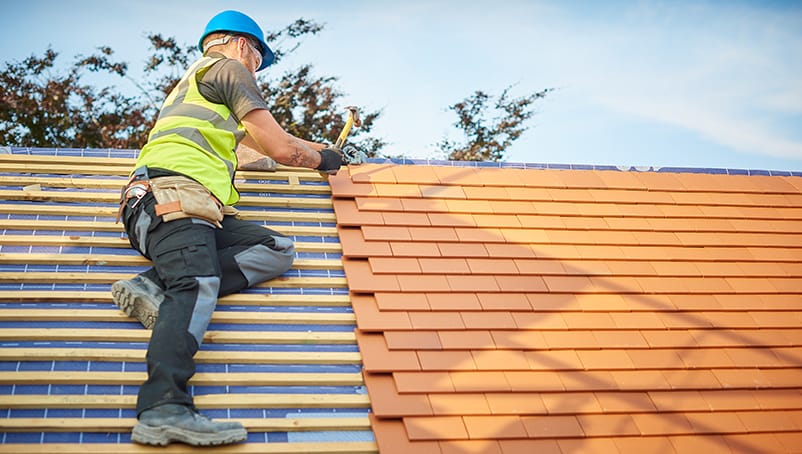By Admin
.19 Dec, 2024

Roofing underlayment often works behind the scenes, silently protecting homes and businesses from damage. In Texas, where weather conditions can be unpredictable, the importance of underlayment cannot be overstated. This blog delves into its significance and why roofer in Texas prioritize its installation.
1. What is Roofing Underlayment?
Roofing underlayment is a protective layer installed between the roof deck and the outer roofing material, such as shingles or metal. It acts as an additional shield against water, wind, and other environmental elements. For residential roofing in Texas, it’s a critical component that enhances durability.
2. Types of Roofing Underlayment
Understanding the types of underlayment helps in choosing the right one for your project. The common options include:
- Asphalt-Saturated Felt: Cost-effective and widely used for both residential and commercial roofing in Texas.
- Rubberized Asphalt: Offers superior waterproofing, ideal for areas prone to heavy rainfall.
- Synthetic Underlayment: Lightweight and durable, becoming increasingly popular among roofing contractors in Texas.
3. Benefits of Roofing Underlayment in Texas
Protection from Water Damage
Texas weather can range from heavy rains to hurricanes. A high-quality underlayment ensures water doesn’t seep into the roof deck, preventing costly repairs.
Enhanced Roof Lifespan
By acting as a secondary barrier, underlayment extends the life of your roofing system. This is crucial for both residential and commercial properties in Texas.
Improved Insulation
Some underlayments contribute to energy efficiency by adding an extra layer of insulation, which is invaluable in the hot Texas climate.
4. Why Roofers in Texas Recommend Underlayment
Roofing contractors in Texas emphasize underlayment for its ability to handle the state’s extreme conditions. It protects homes from:
- Heat: Especially vital for metal roofing in Texas, where the sun’s rays can cause significant wear.
- Storms: Emergency roofer contractors in Texas rely on underlayment to mitigate storm damage.
- Leaks: It’s a critical safeguard against water intrusion during severe weather events.
5. Underlayment for Different Roofing Types
Shingle Roofs
Shingle roofing contractors in Texas often recommend synthetic underlayment for its compatibility with asphalt shingles.
Metal Roofs
Metal roofing contractors in Texas use underlayment to reduce noise and protect against corrosion.
Flat Roofs
For commercial roofing contractors in Texas, underlayment ensures better waterproofing and structural support for flat roofs.
6. Signs You May Need New Underlayment
- Leaks in the Ceiling: Indicating the current underlayment has deteriorated.
- Warped Shingles: Suggesting underlying issues that require inspection.
- Visible Water Damage: A clear sign of underlayment failure.
If you notice any of these signs, consult with the best roofing company in Texas for an assessment.
7. Choosing the Right Roofing Contractor in Texas
Selecting experienced local roofing contractors in Texas ensures proper installation of underlayment. Look for:
- Proven expertise in residential and commercial roofing.
- Positive reviews and a strong reputation.
- Emergency roof repair services for urgent needs.
Conclusion
Roofing underlayment is an unsung hero that safeguards your roof from the elements. Whether you’re dealing with shingle, metal, or flat roofing, investing in quality underlayment is crucial for long-term durability. Trust roofing contractors in Texas to provide expert guidance and installation services to protect your home or business.
For more information or to schedule an inspection, contact Texas Roof Service, the best roofing company in Texas.